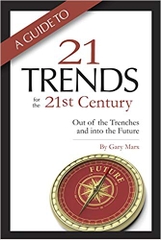-
-
-
Tổng tiền thanh toán:
-
-
Thông tin
-
Tìm sách theo yêu cầu
The bestselling author of The Next 100 Years sharpens his focus to the next ten years, specifically the political shifts that will take place, the decisions that will be made, the consequences of those decisions, and how the American president will acknowledge and manage the fact that the United States has become an empire.
In the long view, history is seen as a series of events—but the course of those events is determined by individuals and their actions. During the next ten years, individual leaders will face significant transitions for their nations: the United States’ relationships with Iran and Israel will be undergoing changes, China will likely confront a major crisis, and the wars in the Islamic world will subside. Unexpected energy and technology developments will emerge, and labor shortages will begin to matter more than financial crises. Distinguished geopolitical forecaster George Friedman analyzes these events from the perspectives of the men and women leading these global changes, focusing in particular on the American president, who will require extraordinary skills to shepherd the United States through this transitional period. The Next Decade is a provocative and fascinating look at the conflicts and opportunities that lie ahead.
In the long view, history is seen as a series of events—but the course of those events is determined by individuals and their actions. During the next ten years, individual leaders will face significant transitions for their nations: the United States’ relationships with Iran and Israel will be undergoing changes, China will likely confront a major crisis, and the wars in the Islamic world will subside. Unexpected energy and technology developments will emerge, and labor shortages will begin to matter more than financial crises. Distinguished geopolitical forecaster George Friedman analyzes these events from the perspectives of the men and women leading these global changes, focusing in particular on the American president, who will require extraordinary skills to shepherd the United States through this transitional period. The Next Decade is a provocative and fascinating look at the conflicts and opportunities that lie ahead.
Product Details
- Paperback: 272 pages
- Publisher: Anchor; Reprint edition (January 10, 2012)
- Language: English
- ISBN-10: 0307476391
- ISBN-13: 978-0307476395
- Product Dimensions: 7.9 x 5.1 x 0.9 inches
- Shipping Weight: 9.6 ounces (View shipping rates and policies)
- Average Customer Review: 3.8 out of 5 stars See all reviews (89 customer reviews)
- Amazon Best Sellers Rank: #25,580 in Books (See Top 100 in Books)
Editorial Reviews
From Publishers Weekly
Whereas Friedman's last book, The Next 100 Years, focused on "the impersonal forces that shape history in the long run," now the geopolitical intelligence expert examines the impact of current decision making, especially of the United States government, on the world. Friedman suggests that problems currently affecting us significantly may not actually matter in the long run. He compares the position of the United States today to that of Britain in 1910, and argues that the U.S. is an "unintended empire" and that its president is a "global emperor," in part due to the size of the country's economy. Throughout, Friedman argues for an end to the reluctance, as he sees it, to entangle the country in global affairs. He examines the past strategies of Presidents Bush and Clinton and stresses what President Obama and his successor must do about terrorism and technology to foster relations with the Middle East, Europe, the Western Pacific, Latin America, Africa, Israel, Iran, and Russia. When it comes to Bush and Obama he doesn't play favorites, criticizing their policies and comparing them with presidents who possessed more Machiavellian attributes, in his view. While his ideas are well-researched and compelling, Friedman makes the occasional leap that casual readers might find confusing.
(c) Copyright PWxyz, LLC. All rights reserved. --This text refers to the Hardcover edition.
(c) Copyright PWxyz, LLC. All rights reserved. --This text refers to the Hardcover edition.
Review
“A must-read.” —The Washington Times
“Delivered in an engaging style and with no little dramatic flourish . . . [The Next Decade should] find a wide and receptive popular audience.” —San Francisco Chronicle
“Friedman . . . has the unusual ability to view events through the eyes of not only American but also foreign leaders.” —New York Observer
“There is a temptation, when you are around George Friedman, to treat him like a Magic 8-Ball.” —The New York Times Magazine
“Considering how right [Friedman]’s been over the years, he’s worth listening to.” —San Antonio Express-News
“Predictions have made George Friedman a hot property these days.” —The Wall Street Journal
“Well-researched and compelling.” —Publishers Weekly
“Expect the unexpected. . . . He can see without the crystal ball.” —Newsweek
Most Helpful Customer Reviews
230 of 257 people found the following review helpful
If there is a more informative thinker writing today, you let me know - EXTRAORDINARY - 5 STARS !!!!
By Richad of Connecticut VINE VOICE on January 25, 2011Format: Hardcover Verified Purchase
8 Comments Was this review helpful to you? YesNoIn the 1950's John Von Neumann was acknowledged as the greatest mathematician of the 20th century. A man so smart that the United States military said that when you asked Von Neumann a question, if he answered you, there was no need to think about it any longer. He was that far ahead of everyone else in the room. Author George Friedman is an extraordinary thinker, and he is paid to think, which makes for an interesting profession. Born in Hungary, and educated at the City College of New York, he has a Ph.D. in government from Cornell. He then teaches for 20 years at Dickinson College.
His real deal however is that for years he would brief senior commanders in the armed services, and you can't blow smoke when you do this. People simply get onto you, and they do not suffer fools gladly. For years now, he has run Stratfor which is a think tank specializing in intelligence matters. They also have a paid subscription service for those who are interested in current, cutting edge information on geo-political matters. He has authored more than a half dozen books, all of which have been profoundly interesting and what I call page-turners.
In this book, The Next Decade, Friedman only goes out ten years in time compared to his previous work when he went out 100 years. It is the author's contention that with the demise of the Soviet Union, the United States has become pre-eminent in the world militarily, politically, economically, and no one is even close. We have become an EMPIRE like it or not. Now we may be an Empire that doesn't like being an Empire similar to ancient Rome or Great Britain in the 19th century, but it doesn't change facts, and the facts are we are what we are.Read more ›
His real deal however is that for years he would brief senior commanders in the armed services, and you can't blow smoke when you do this. People simply get onto you, and they do not suffer fools gladly. For years now, he has run Stratfor which is a think tank specializing in intelligence matters. They also have a paid subscription service for those who are interested in current, cutting edge information on geo-political matters. He has authored more than a half dozen books, all of which have been profoundly interesting and what I call page-turners.
In this book, The Next Decade, Friedman only goes out ten years in time compared to his previous work when he went out 100 years. It is the author's contention that with the demise of the Soviet Union, the United States has become pre-eminent in the world militarily, politically, economically, and no one is even close. We have become an EMPIRE like it or not. Now we may be an Empire that doesn't like being an Empire similar to ancient Rome or Great Britain in the 19th century, but it doesn't change facts, and the facts are we are what we are.Read more ›
33 of 36 people found the following review helpfulBy Mercenary Trader on February 25, 2011
Format: Hardcover Verified Purchase
1 Comment Was this review helpful to you? YesNoGeorge Friedman's "The Next Decade" could alternately be described as Machiavelli 101 or a crash course in realpolitik.
Friedman's central thrust is this: America is an accidental empire - like it or hate it, the world must deal with it - and it is thus in the United States' best interest to maintain the "balance of power" at all costs.
The balance of power is predicated on status quo. When you are at the top of the heap (as America is in Friedman's view), any major shifts threaten to destabilize the top dog's position. As the British and Roman empires did before it, the American empire must anticipate and prevent such shifts, blocking up-and-comers from excessive power accumulation.
As Friedman sees it, a century is about events but a decade is about people. The main actor over the next ten years will be the POTUS, or President of the United States. In his role as shaper of strategy and manager of expectations, the POTUS must act as a classic "prince" in the Machiavelli mold.
This role also involves double-dealing with the populace, in terms of appearing to meet unreasonable demands (such as overwhelming focus on the war on terrorism) while actually focusing on more critical things (behind-the-scenes issues too nuanced or complicated to explain).
To safeguard America's interests, Friedman endorses what one might call an enlightened amorality - doing what is necessary for the sake of the greater good. Friedman argues for a middle ground between the idealists and the realists, pointing out unworkable flaws at both extremes. The idealists are ill-equipped to function in the real world, while the realists find themselves lost without a guiding moral compass.Read more ›
Friedman's central thrust is this: America is an accidental empire - like it or hate it, the world must deal with it - and it is thus in the United States' best interest to maintain the "balance of power" at all costs.
The balance of power is predicated on status quo. When you are at the top of the heap (as America is in Friedman's view), any major shifts threaten to destabilize the top dog's position. As the British and Roman empires did before it, the American empire must anticipate and prevent such shifts, blocking up-and-comers from excessive power accumulation.
As Friedman sees it, a century is about events but a decade is about people. The main actor over the next ten years will be the POTUS, or President of the United States. In his role as shaper of strategy and manager of expectations, the POTUS must act as a classic "prince" in the Machiavelli mold.
This role also involves double-dealing with the populace, in terms of appearing to meet unreasonable demands (such as overwhelming focus on the war on terrorism) while actually focusing on more critical things (behind-the-scenes issues too nuanced or complicated to explain).
To safeguard America's interests, Friedman endorses what one might call an enlightened amorality - doing what is necessary for the sake of the greater good. Friedman argues for a middle ground between the idealists and the realists, pointing out unworkable flaws at both extremes. The idealists are ill-equipped to function in the real world, while the realists find themselves lost without a guiding moral compass.Read more ›
43 of 50 people found the following review helpfulBy Eric Mayforth on January 25, 2011
Format: Hardcover
As hard as it is to believe, it has been more than a decade since the big ball fell in Times Square to denote the arrival of the twenty-first century. The first ten years of the century were dominated by the 9/11 attacks and the response to them that followed, as well as the financial crisis that rocked the world late in the decade. In "The Next Decade," George Friedman turns his attention to the second decade of the century.
Friedman argues that the United States is now an empire in that we can "rarely take a step without threatening some nation or benefiting another," and that we have an effect on so many countries--in some cases the impact is huge.
The author is concerned that America will lose the soul of its republic, and describes the type of president the country will need in order to balance the demands of empire with the retention of the republic, and showed how Lincoln, FDR, and Reagan balanced various demands in the past in order to further America's best interest.
The Middle East was the central focus of attention for our foreign policy in the last decade, and Friedman puts forth proposed solutions for relations with Israel and Iran in the new decade. He supports a balance of power approach that prevents coalitions from forming against U.S. interests and avoids the necessity of America becoming bogged down in any one region of the world, and also offers his opinion concerning the viability of the total elimination of the threat from terrorists.Read more ›
Friedman argues that the United States is now an empire in that we can "rarely take a step without threatening some nation or benefiting another," and that we have an effect on so many countries--in some cases the impact is huge.
The author is concerned that America will lose the soul of its republic, and describes the type of president the country will need in order to balance the demands of empire with the retention of the republic, and showed how Lincoln, FDR, and Reagan balanced various demands in the past in order to further America's best interest.
The Middle East was the central focus of attention for our foreign policy in the last decade, and Friedman puts forth proposed solutions for relations with Israel and Iran in the new decade. He supports a balance of power approach that prevents coalitions from forming against U.S. interests and avoids the necessity of America becoming bogged down in any one region of the world, and also offers his opinion concerning the viability of the total elimination of the threat from terrorists.Read more ›
XEM THÊM TẠI AMAZON.COM
- Thông tin chi tiết
- Mục lục
- Đọc thử
- Đọc thử
- Đánh giá & bình luận của người mua
- Những cuốn sách cùng chủ đề hoặc có liên quan
Link: http://www.amazon.com/Next-Decade-Empire-Republic-Changing/dp/0307476391/
Tại web chỉ có một phần nhỏ các đầu sách đang có nên nếu cần tìm sách gì các bạn có thể liên hệ trực tiếp với Thư viện qua Mail, Zalo, Fanpage nhé
Đăng ký nhận tin qua email
Hãy đăng ký ngay hôm nay để nhận được những tin tức cập nhật mới nhất về sản phẩm và các chương trình giảm giá, khuyến mại của chúng tôi.












